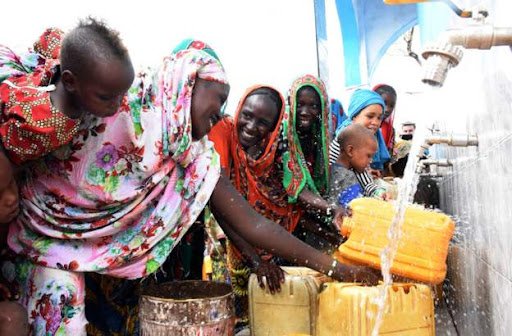Chad’s Generosity: Free Water and Electricity Services Extended to Households
Chad’s government has recently unveiled a significant initiative to provide households with free water and electricity until the end of the year. Under this program, the government has set a monthly cap on household consumption, allowing residents to benefit from up to 15 cubic meters (15,000 liters) of water and 300 kWh of electricity without incurring charges. Additionally, the government has committed to clearing water and electricity bills for residents who have outstanding arrears.
This move is perceived as a strategic effort by Chad’s junta leader and interim President, Mahamat Déby, to support households and potentially gain favor among voters in the upcoming presidential elections scheduled for May and June. The initiative aims to alleviate the economic burden on citizens, especially amidst the ongoing challenges posed by the cost-of-living crisis.
In conjunction with the provisions for free water and electricity, the government has also implemented a reduction in transport taxes. This measure is intended to mitigate the impact of increased transport costs, which surged last month due to a rise in fuel prices. While some Chadians view these initiatives as a calculated attempt to win over voters, there are others who express skepticism. This skepticism is fueled by the persisting power outage affecting various parts of the capital, N’Djamena, over the past two weeks.
Despite the mixed reactions, a considerable number of Chadians welcome the government’s intervention, recognizing it as a much-needed relief in the face of economic difficulties. The comprehensive strategy, encompassing free utilities and transport cost reduction, reflects the government’s commitment to addressing the immediate economic challenges faced by the population.
As Chad enters a crucial period with upcoming elections, the impact of these government policies on citizens will likely be a determining factor in shaping public opinion and influencing voter sentiment. The success or perceived effectiveness of these measures could significantly sway the political landscape in the lead-up to the elections, underscoring the importance of socio-economic policies in the electoral context.



















